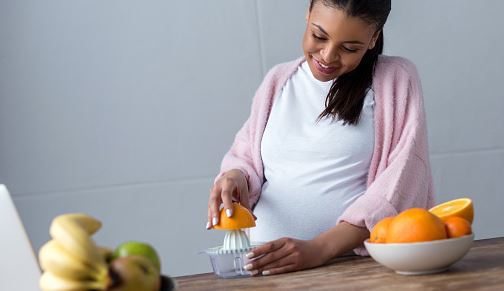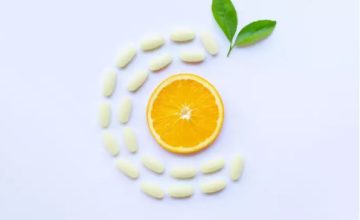
Proper nourishment during pregnancy is vital for both mother and the baby, as women need more vital nutrition during this time than before pregnancy.
And hence, a regular diet needs to be complemented every day with additional nutrients which is crucial for a baby’s growth.
Vitamin C (also known as ascorbic acid), is a water-soluble micronutrient that is essential for tissue repair, bone growth and ensures healthy skin.
It even helps expecting mothers to fight several infections (especially during cold and flu season) and acts as an antioxidant protecting from damage.
In article, we’ll tell you more about why the importance of Vitamin C in a pregnant woman’s diet.
Understanding Vitamin C Deficiency In Pregnancy
In many developing countries like India, the incidence of clinical symptoms due to Vitamin C deficiency is still very high despite its broad availability in fruits and vegetables, according to research. The deficiency of Vitamin C in pregnancy can cause major complications in the unborn baby. Signs of deficiency may include brittle hair, gum inflammation, rough and dry skin, slow-healing cuts and bruises.
How Vitamin C Helps The Mother And Baby
The building of collagen is important during the pregnancy period – a structural protein that is a component of cartilage, tendons, bones and skin. And this is largely ensured by Vitamin C intake. Food rich in Vitamin C also helps in absorbing iron in the body, which is one of the most crucial requirements for expecting mothers. It even increases metabolism in both mother and the baby. Some of the rich sources of Vitamin C are easily available in orange, strawberries, lemon, mango, tomato, grapefruit, kiwi, melons, peppers amongst others.
Vitamin C Supplementation In Pregnancy
In certain situations, the treating doctors may advise women with pregnancy to consume Vitamin C in the supplementation form in case the daily dose is not sufficiently consumed through natural sources. This is also considering the fact that unlike some of the other vitamins, our body neither synthesizes nor stores Vitamin C. As per research, it was indicated that pregnant women typically have lower vitamin C levels in their body compared with nonpregnant women. Therefore, consuming Vitamin C in the supplementation form can potentially decrease the risk of some pregnancy-related complications.
Another research suggests that Vitamin C supplementation helps reduce the risk of pregnancy complications such as pre-eclampsia (a potentially dangerous pregnancy complication characterised by high blood pressure), fetal growth restriction (where the new-born baby weighs lesser than 90 per cent of other babies) or maternal anaemia (largely caused due to iron deficiency).
However, it is advisable to check with your medical practitioner on the daily source of Vitamin C recommended for you. This requirement varies as per the individual’s pre-medical conditions along with unique medical history.
The mother can follow their meal plan as recommended by their nutritionist. Having said that, certain foods should be avoided such as processed can foods, oily and junk food, raw or uncooked animal products, alcohol, and caffeine. Unnecessary supplements high in sugar should be avoided.
While adopting a holistic regimen with a healthy diet, exercise or prenatal yoga, Vitamin C provides an additional benefit for expecting mothers to have a healthy pregnancy journey as the benefits are multi-faced, not just during the pregnancy but even in the postpartum stages.




